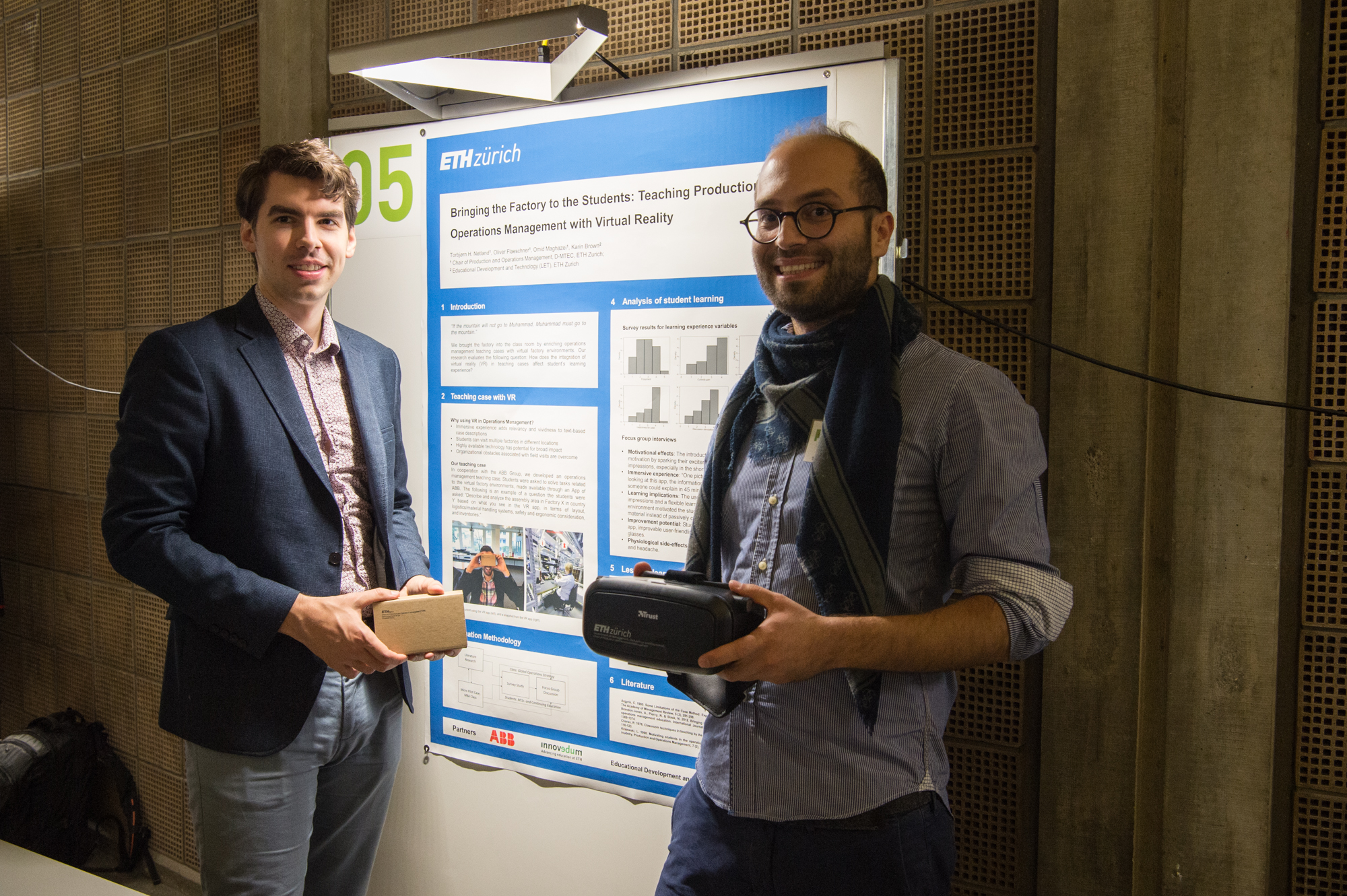An interdisciplinary and application-oriented approach to teaching microfluidics for microbial ecology
Booth #05
Our project “Case VR” brings the factory into the classroom of production and operations management courses. By using virtual reality we enhance the case method for teaching socio-technical phenomena.
Authors
Dr Torbjörn Netland, D-MTEC, Chair of Production and Operations Management
Oliver Flaeschner, D-MTEC, Chair of Production and Operations Management
Omid Maghazei, D-MTEC, Chair of Production and Operations Management
Abstract
An operations management class should equip students with a realistic understanding of the operations of a factory and ways how these can be made more efficient. However, organizing factory visits for an entire class of students requires significant resources. At the same time, the common alternative of text-based case studies does not allow students to receive an inside-view of how a factory works. As a solution to this, we propose the use of virtual reality (VR) to bring the factory to the students. We present the results of a pilot study of a VR enhanced teaching case that we used in the 2018 spring semester course “Global Operations Strategy”.
For our teaching case, we teamed up with the ABB Group that offers VR environments of some of their factories located in Switzerland, Germany and Finland. We introduced these VR environments as case material for our three-part, graded case study which the students were asked to solve in groups of three to four. We also scheduled a guest lecture of ABB speakers to provide the students additional background information. In the first part of the case study, we encouraged the students to use the VR environment to collect information about the production processes in specific factory locations. In the second part, students were asked to observe and analyze the production layout, internal logistics and general productivity of the sites. In the third part, students used the VR environments to compare factories in order to suggest a multi-site production improvement program. Each case part was concluded with presentations of student solutions and class discussion.
To evaluate the effects of a VR enriched case study on student learning, we administered a survey and conducted focus group discussions. The survey, which was taken by 65% of the students, provided a general picture. More in-depth insights were obtained from the focus group discussions which were directed, recorded and coded by Karin Brown from the LET.
We learned that indeed, VR enhanced case studies can complement operations man-agement teaching but its implementation is not without challenges. Our results suggest that VR allows students to immerse into factory environment and that the use of new technology has potential to boost student motivation. Due to the low cost of basic virtual reality glasses, classes anywhere in the world can in the future adopt VR case studies. Furthermore, also related engineering and management classes can profit from similar approaches.
